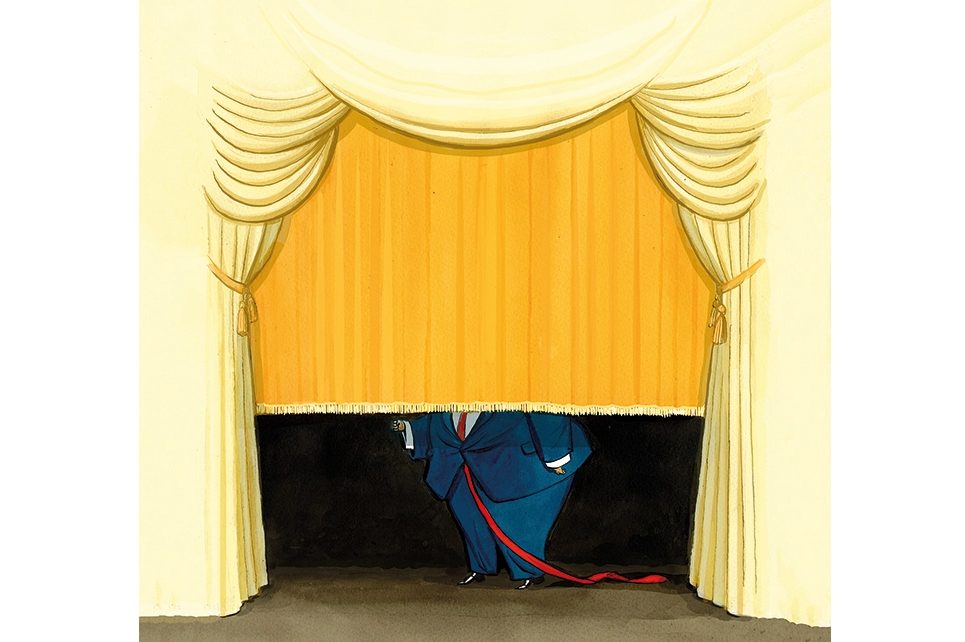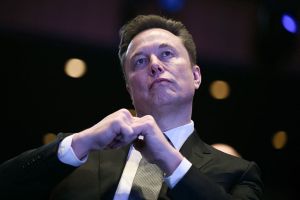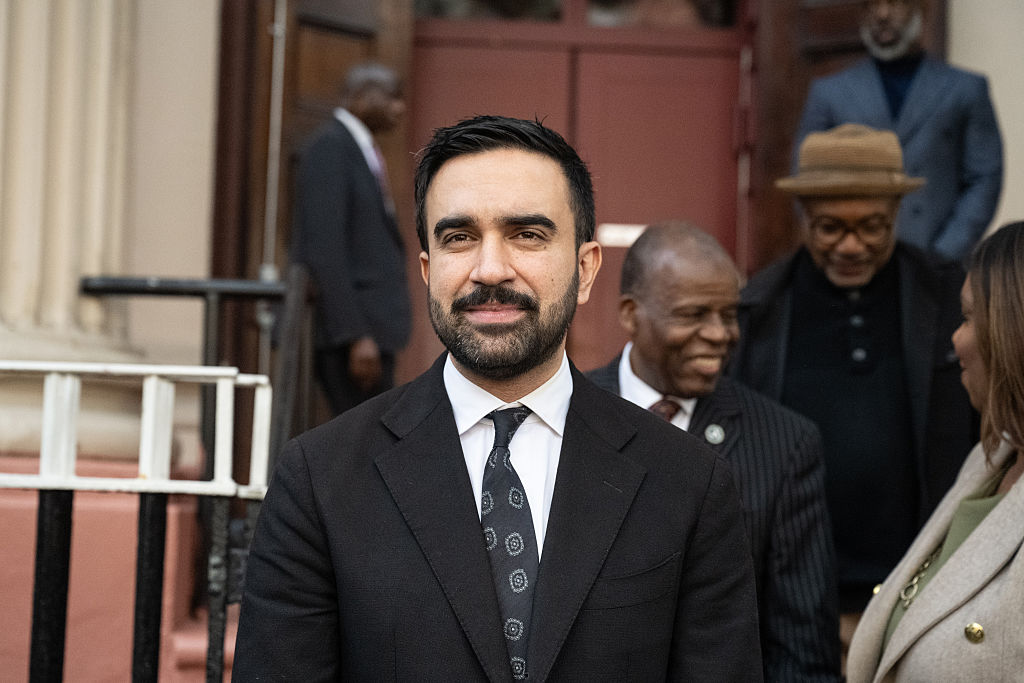Everyone knows F. Scott Fitzgerald’s famous line from the end of his unfinished novel The Last Tycoon: “There are no second acts in American lives.” But Fitzgerald wasn’t talking about second chances. He meant that, unlike in a traditional play — where Act I presents a problem, Act II reveals the complications and Act III resolves it all — Americans want to skip Act II and go straight to the resolution.
The more I think about it, the more I think the Joe Biden presidency is Act II — and Donald Trump is not the last tycoon. He’s Act III. He’s the next president.
The campaign of lawfare against him has already begun to backfire
Democratic strategists think otherwise. First, they believe that Biden will always beat Trump, even if they somehow face each other in every presidential election from now until Hell freezes over. Second, they believe that Trump’s sea of legal troubles will ultimately drown him as a candidate. Both these views betray a failure of imagination.
Yes, it’s true: Trump is the first former president to face criminal charges, after a grand jury voted to indict him on March 30 over hush-money payments made to the porn star Stormy Daniels. That case is just one of an estimated seventeen lawsuits and investigations the 45th president currently confronts. On Tuesday, in a civil case, a Manhattan jury found him liable for sexually abusing and defaming (though not raping) the journalist E. Jean Carroll, awarding her $5 million in damages. Carroll could not recall if the alleged assault happened in 1995 or 1996.
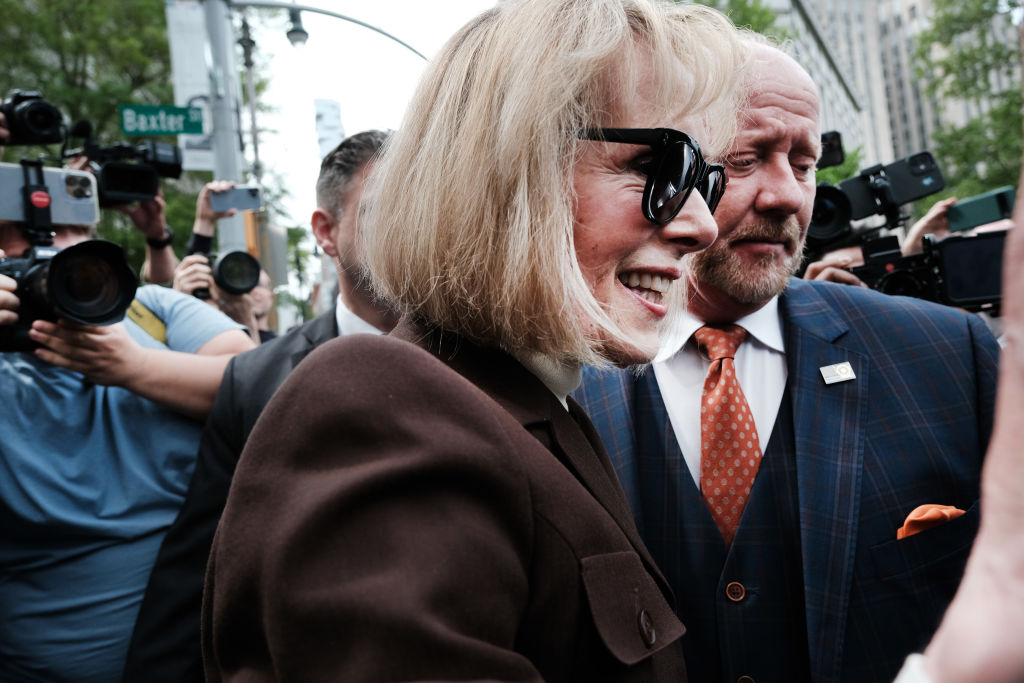
Yet the campaign of lawfare against Trump has already started to backfire. This should not surprise us. Consider eight recent cases around the world when a leading presidential candidate or likely prime minister was indicted. Some — Brazil’s Luiz Inácio Lula da Silva, Italy’s Silvio Berlusconi and Malaysia’s Anwar Ibrahim — engineered political comebacks after being barred from politics following a conviction or imprisonment. Others — South Africa’s Jacob Zuma and Israel’s Benjamin Netanyahu — saw continued political success despite ongoing criminal cases against them. (The law caught up with Zuma only after he’d left power.) France stands out as the exception: the indictments of three presidential frontrunners — Dominique Strauss-Kahn, former prime minister François Fillon and ex-president Nicolas Sarkozy — all ended their presidential campaigns.
Having just visited Brazil, I can say with some conviction that the case of Lula is the closest analogy, not least because the US and Brazil seem to be converging in terms of their political cultures.
If Lula can come back from one-and-a-half years in jail to win, Trump may have little to worry about, as there isn’t the slightest chance of his being locked up between now and Election Day next year. Indeed, the perception that Democratic operatives are using the legal system for political ends will likely help him win votes. It’s a much better story than his earlier claim that the 2020 election was stolen, which now bores almost everyone except Trump himself.
It may seem paradoxical that the Democrats are harassing Trump in the courts if they want to run against him. But it makes sense: the prospect of him performing the perp walk attracts media coverage, and media coverage is the free publicity on which Trump has always thrived. Every column inch or minute of airtime his legal battles earn him is an inch or a minute less for his Republican rivals for the nomination.
If it were a two-man contest, there would be a good deal more uncertainty around the outcome. Florida governor Ron DeSantis has not even declared his intention to run for the Republican nomination. Even so, he has been fundraising more successfully than Trump, not least because the donor class so clearly prefers youth and administrative competence. In head-to-head polling, DeSantis still looks to be in contention.
But this will not be a two-man contest. Former United Nations ambassador Nikki Haley is in. So, probably, is Trump’s former vice president, Mike Pence. Senator Tim Scott of South Carolina and former New Jersey governor Chris Christie sound interested too — as does Glenn Youngkin, the governor of Virginia, who will say merely that he won’t run “this year.” And let’s not forget the techno-libertarian livewire Vivek Ramaswamy. Only the former secretary of state Mike Pompeo has definitely dropped out.
When voters are polled about this crowded field, Trump is the clear frontrunner, leading DeSantis by an average margin of nearly thirty points, 52.1 percent to 22.9. This is compared with a lead of just thirteen points back in January. The one other candidate with support above 5 percent is Pence.
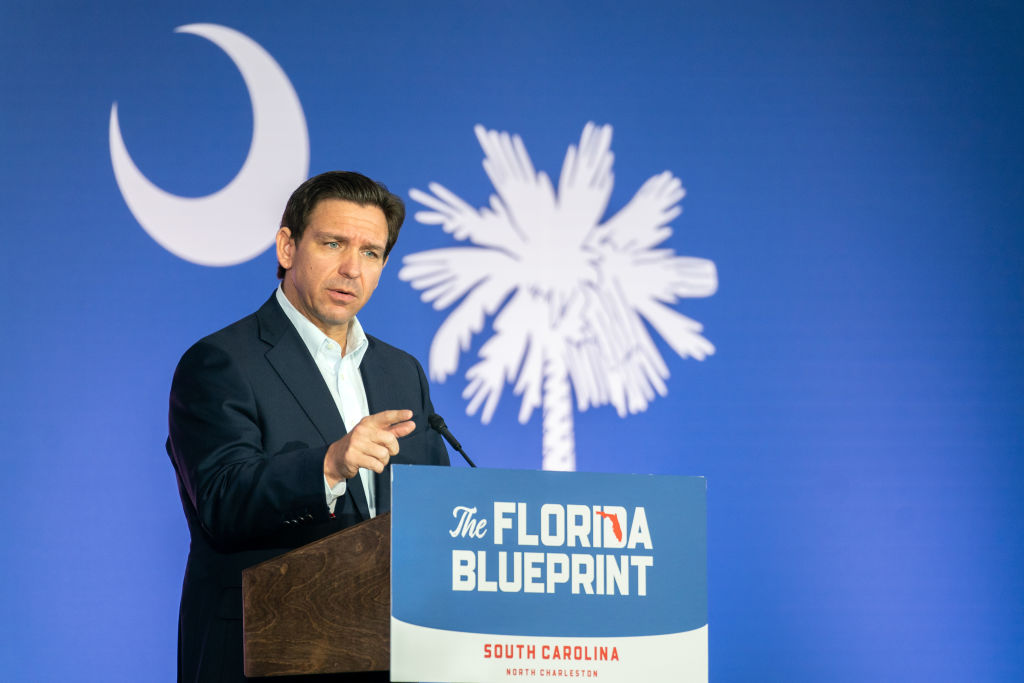
It’s obligatory to say at this point that it is very early days and a lot can happen in the next eighteen months, and that is true. A year and a half before November 2020, not many people foresaw a global pandemic.
Since 1972, the candidate who led in early polling won his or her party’s nomination in little more than half of competitive presidential primaries. This, however, is the Republicans we are talking about, not the Democrats. Early front-runners have won Republican primaries in six out of eight competitive races since 1972, when the modern system of primaries was introduced. The two exceptions were John McCain in 2008 and Trump himself in 2016.
The Republican primary process favors candidates with early leads because most states award delegates on a “winner takes all” or “winner takes most” basis. In Democratic primaries, by contrast, delegates are generally assigned proportionally according to the results, and the early frontrunner has won in just four of eleven contests.
If Trump maintains his current average polling numbers through the first half of 2023 but doesn’t become the Republicans’ choice for president, he would be the highest-polling candidate ever to fail to secure the nomination. He would join Ted Kennedy, Ed Muskie, Rudy Giuliani, Hillary Clinton (in her 2008 bid) and Scott Walker in the Failed Front-runners club. Conversely, if Ron DeSantis beats Trump to the nomination, it would be a bigger upset than Barack Obama’s victory over Hillary Clinton in 2008. In short, unless the Republican party has somehow morphed into the Democratic party, the GOP nomination is now Trump’s to lose.
What we have witnessed over the past two years is an epic monetary policy failure
And that brings us to the Democrats’ assumption that Trump can’t beat Biden, which depends heavily on Trump’s underperformance not only in 2020, but also in the midterm elections of 2018 and 2022, when candidates he backed fared poorly. The readiness of Team Biden to declare their man’s intention to seek re-election sooner rather than later tells me they are too confident.
Face it: Biden isn’t that popular as world leaders go. In their respective countries, Narendra Modi (India), Andrés Manuel López Obrador (Mexico), Anthony Albanese (Australia), Lula (Brazil) and Giorgia Meloni (Italy) are all better liked. If you look at Biden’s job approval, using the RealClearPolitics average, he is now slightly more unpopular (a net approval of minus 11.6 percent) than Trump was at this stage in his presidency (minus 10.7 percent).
Trump is also not that unpopular. Indeed, he is less so than at this point eight years ago. In July 2015, Trump’s net unfavorable number was minus 39.3 percent. Today, it’s minus 16 percent. Then, just 23 percent of voters had a positive view of him. Now it’s 39 percent. The RealClear figure for Joe Biden is 41 percent, and his net unfavorable is minus 12 percent.
And that’s the state of play at the moment. But what if there’s a recession between now and next year? It’s not a certainty. There is more than one smart economist who still believes there could be a “soft landing,” despite all the recent worries sparked by US (and Swiss) bank failures. In an interview with CNBC, Apollo Global Management’s chief executive, Mark Rowan, even used the phrase “non-recession recession,” which we must hope doesn’t catch on.
On the other hand, former treasury secretary Larry Summers has had a pretty good run ever since he called the Biden administration’s inflationary fiscal mistake back in February 2021, and he said last week that there’s a 70 percent probability of a recession within the next year. He is not alone.
I’m with the bears. What we have witnessed over the past two years is an epic monetary policy failure. In June 2021, the members of the Federal Open Market Committee thought that the target federal funds rate this year would lie between zero and 1.75 percent. By March of this year, they had to revise those figures up to between 4.75 and 6 percent. Having been asleep at the wheel in 2021, they have cranked up short-term rates to try to bring inflation back down to 2 percent. But they are still a long way from achieving that.
As central bankers love to intone, monetary policy acts with long and variable lags. The current lag is taking longer than people appreciate. Recessions resemble slow chain reactions. The signal from the policy interest rate to the wider economy goes through multiple channels, but the most important is the volume of bank credit.
In the twelve months through March, total bank credit in the US economy declined in real terms. That rarely occurs. Since 1960, it has happened only during, or in the immediate aftermath of, a recession. This is the indicator to watch, along with the surveys of borrowers and lenders.
The deceptive indicators are those that track consumer behavior and the labour market, which still look strong. In the latest GDP print, consumption was still growing. But non-residential investment contracted. The present game of chicken over the debt ceiling makes a recession more likely. As in 2011, the showdown will probably be resolved at the last moment, within twenty-four hours of the “X-date” after which the Treasury must either slash public spending or default on some part of the federal debt. But the 2011 debt-ceiling crisis took place during the sluggish recovery from the 2008 financial crisis, when inflation and interest rates were close to the zero lower bound. The risk of a bond market accident is much higher today.
What this suggests to me is that Joe Biden is in serious danger of following Gerald Ford, Jimmy Carter and George H.W. Bush into the trashcan marked “one-term presidents.” Why? For the simple reason that no president since Calvin Coolidge a century ago has secured re-election if a recession has occurred in the two years before the nation votes. It does not need to be as severe as the Great Depression that destroyed Herbert Hoover’s presidency. A plain vanilla recession will suffice.
In the wake of the 1976 Republican convention, Ford was trailing his rival, Carter, by thirty-three points in the Gallup poll. His campaign did an extraordinary job of closing the gap, so that the result was tantalizingly close. But over the GOP, as the New York Times put it in its immediate post-election report, “hung the shadow of Richard M. Nixon and a dangerously shaky economy.”
In 1980, it was Carter’s turn to lose, in part because of “last-minute rejections of [his] handling of the economy,” in part because of the Iran hostage crisis. “Inflation and unemployment had been a constant drag on Mr. Carter throughout the race,” reported the New York Times. “The issue got new prominence when Mr. Reagan stressed it as he closed his argument in the debate in Cleveland by saying, ‘Ask yourself, are you better off than you were four years ago?’”
And in 1992, Bill Clinton ran on “the economy, stupid,” one of three points on a sign that his chief strategist James Carville hung in the campaign headquarters in Little Rock, Arkansas. (The others were “Change vs more of the same” and “Don’t forget healthcare.”)
If you think the economy isn’t going to be the issue in the 2024 election, I’ve got a Whip Inflation Now badge to sell you. Look at the Gallup poll on “satisfaction with the way things are going in the US.” That’s currently at the 1980 level, half what it was four years ago, before the pandemic. Gallup’s economic confidence index is deeply in negative territory, the opposite of where it was under Trump. And this is before any recession.
One can never rule out surprises in American politics. Perhaps Peggy Noonan is right that Robert F. Kennedy Jr., who is running for the Democratic nomination, can mount a real challenge to Biden. He has the magic name, after all, even if he is an anti-vaccine crank. Perhaps the West Virginia senator Joe Manchin was hinting at a presidential run when he issued a statement last week that declared: “Make no mistake, I will win any race I enter.” But the lesson of history is clear — the Republican front-runner usually wins the nomination, and a post-recession incumbent usually loses the presidential election.
Trump would almost certainly seek to impose a compromise peace on Ukraine
All of which raises the question of what it would mean to have Trump back in the White House in January 2025. Obviously, the air would be filled with the sound of liberal and progressive heads exploding — not to mention the gnashing of teeth and rending of garments of the NeverTrump Republicans. But, as in 2016, investors would quietly turn more bullish at the prospect of the return to power of policy-makers such as Kevin Hassett and Chris Liddell, assuming they were willing to serve again. Re-forming the band that brought you “deregulate and cut taxes on investment” — which delivered such good economic results — would give US stocks a boost they may badly need by then.
Meanwhile, Trump’s re-election would alter the course of US foreign policy in significant ways. Though there have been some continuities in policy from his presidency to Biden’s — notably the continuation of tariffs on China, despite their negligible efficacy — Trump 2.0 would more than likely deviate in significant ways from Biden’s national security strategy.
This would be especially the case if, as seems probable, Trump avoided encumbering himself with military men consciously seeking to exert a restraining influence. Trump favors a trade war with China, not a cold war. He is not strongly committed to the defense of Taiwan. He would almost certainly seek to impose a compromise peace on Ukraine, as he regards the Ukrainian president Volodymyr Zelensky with something less than respect, and has a notorious inclination to do business with Vladimir Putin. And Trump would ditch the failed Middle East policy of seeking to revive the defunct nuclear deal with Iran and antagonizing Saudi Arabia.
Perhaps all this is a delusion. After all, another lesson of history is that only one previous president has secured a second non-consecutive term: Grover Cleveland in 1892. As Jim Carville understood, “change” generally beats “more of the same” in America. But don’t let anyone quote F. Scott Fitzgerald at you. A second Trump act is not just possible. It’s fast becoming my base case.
This article was originally published in The Spectator’s UK magazine. Subscribe to the World edition here.



